This Woman Who Is Battling Cancer Is Sharing Her Life Behind The Scenes To Help Spread Awareness, And She Has Educated Millions Of People
Kenzi Paquin is a wife and mom of five who is battling cervical cancer for the third time.

Cervical cancer is a type of cancer that occurs in the cells of the cervix. The cervix is the lower part of the uterus that connects to the vagina.
Kenzi has been sharing her story and her experience having cancer to help others and spread awareness. In doing so, she has gained a following of over 1.5 million on TikTok and hundreds of thousands on Instagram. Kenzi is also an autism, mental health, and domestic abuse advocate.

BuzzFeed spoke to Kenzi, who said she had early cervical cancer in 2016 that was taken care of in a small procedure. "I was supposed to be getting Pap smears every six months after that and I didn’t go. If I had been getting my regular check-ups, I would’ve caught it early again. I waited three and a half years and the next thing I was told is it was stage IIIB."

Stage IIIB is when the cancer has spread to the pelvic wall and/or the tumor has become large enough to block one or both ureters.
After Kenzi was told she had cancer again, she felt frightened. "The first thing I thought of was my kids and how hurtful it would be for them to live without a mother," she said.

"You don’t typically have symptoms with cervical cancer until it has progressed. That’s why annual Pap smears are so important," Kenzi said.

"I eventually had symptoms of bleeding between periods and during/after sex. I also experienced horrible cramps and back pain, an odd odor and discharge, and pain during/after sex. I have constant nausea and fatigue," she said.
Kenzi is currently on chemotherapy and has shared moments of shaving her head...
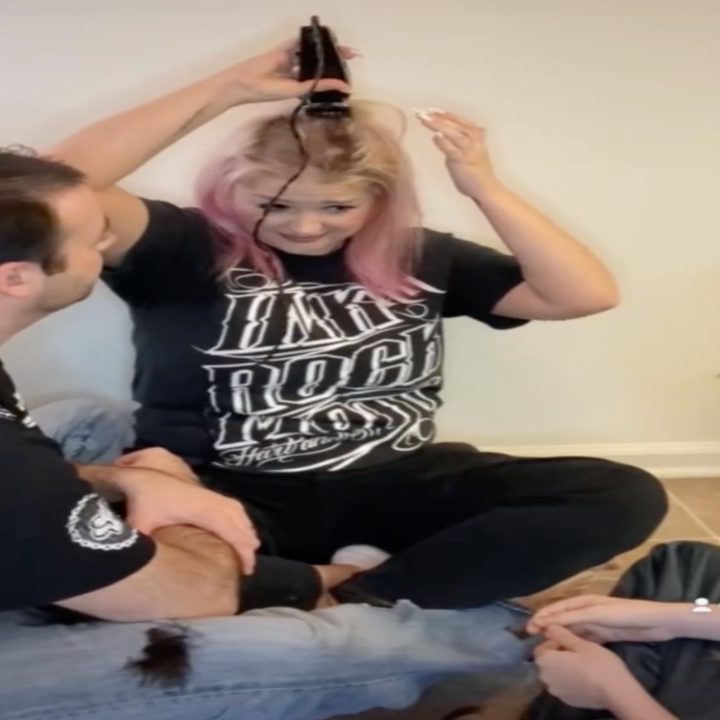
Feeling extremely defeated when she found out the cancer had spread to her lymph nodes...

And heartbreaking conversations she has had with her kids and her extended family...
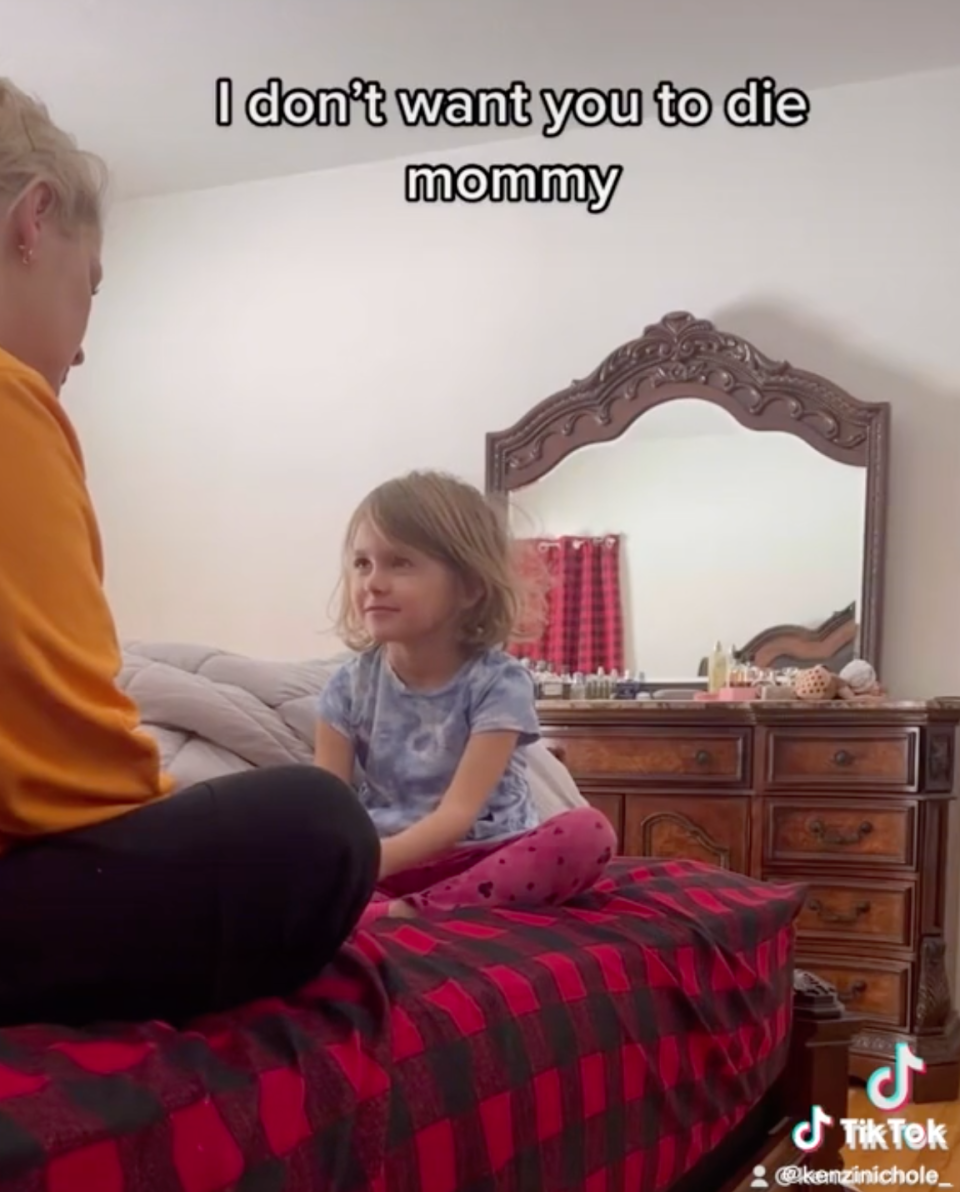
She has documented many of her hospital stays.
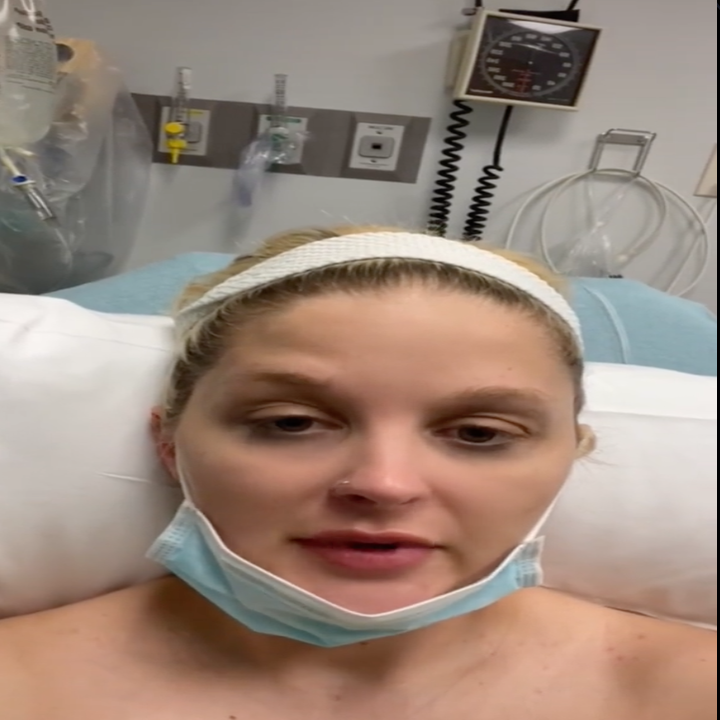
And she has always been open and vulnerable to help others as she lives through her journey.

Some doctors have told Kenzi she only has a year left, while others have told her she has three years, tops. Others, however, are hopeful she will be cancer free again. No matter what, Kenzi is going to stay positive and keep fighting.

"Cervical cancer is known as the silent killer. Yearly Pap smears are vital. You are your own health advocate, stand up for yourself and your health. No one else will," Kenzi said.
To get more information about cervical cancer, BuzzFeed spoke to OB-GYN Dr. Fatima Daoud Yilmaz, who is currently a clinical assistant professor of obstetrics and gynecology. She has been practicing for five years.
"A Pap smear is a screening test for cervical cancer. It involves taking a sample of the cells on the surface of the cervix so that they can be examined for abnormalities under a microscope. Pap smears are important because they are an easy way to detect cervical pre-cancers before they spread and transform into cervical cancer," Dr. Daoud said.
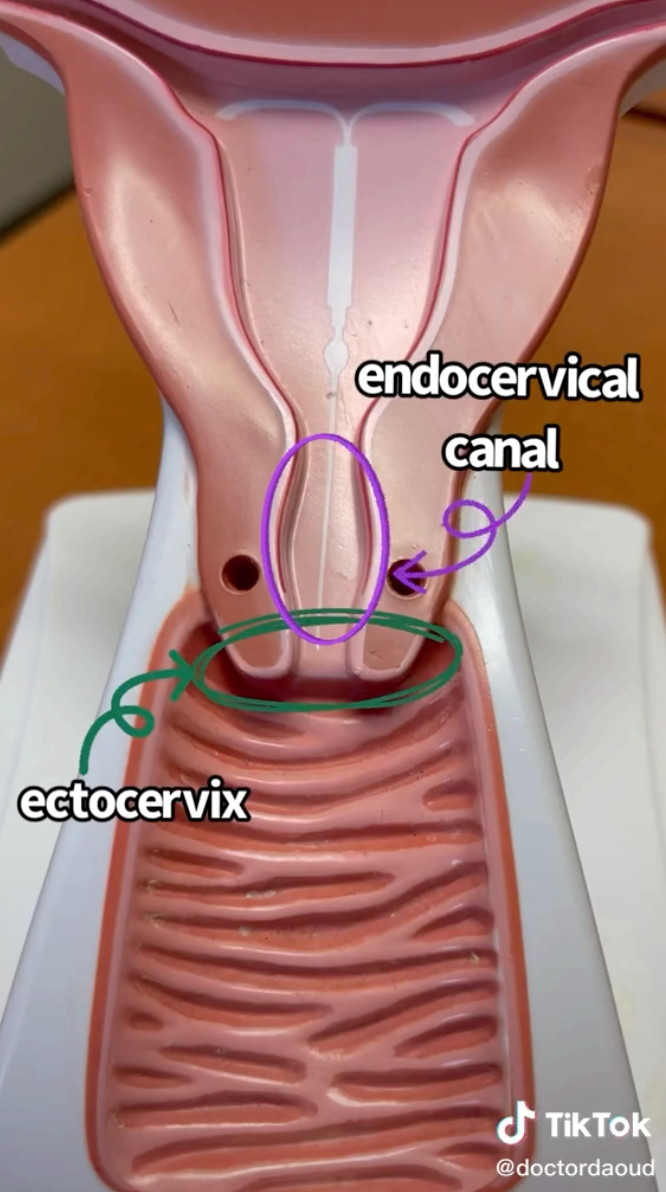
For the majority of patients, Dr. Daoud said a Pap smear is not very painful — many don't feel it at all. "Rather, the pelvic exam involving the insertion of a speculum into the vagina, which is done in order to visualize the cervix and collect the Pap smear, can be uncomfortable for some. Some people may experience spotting or cramping after a Pap smear."
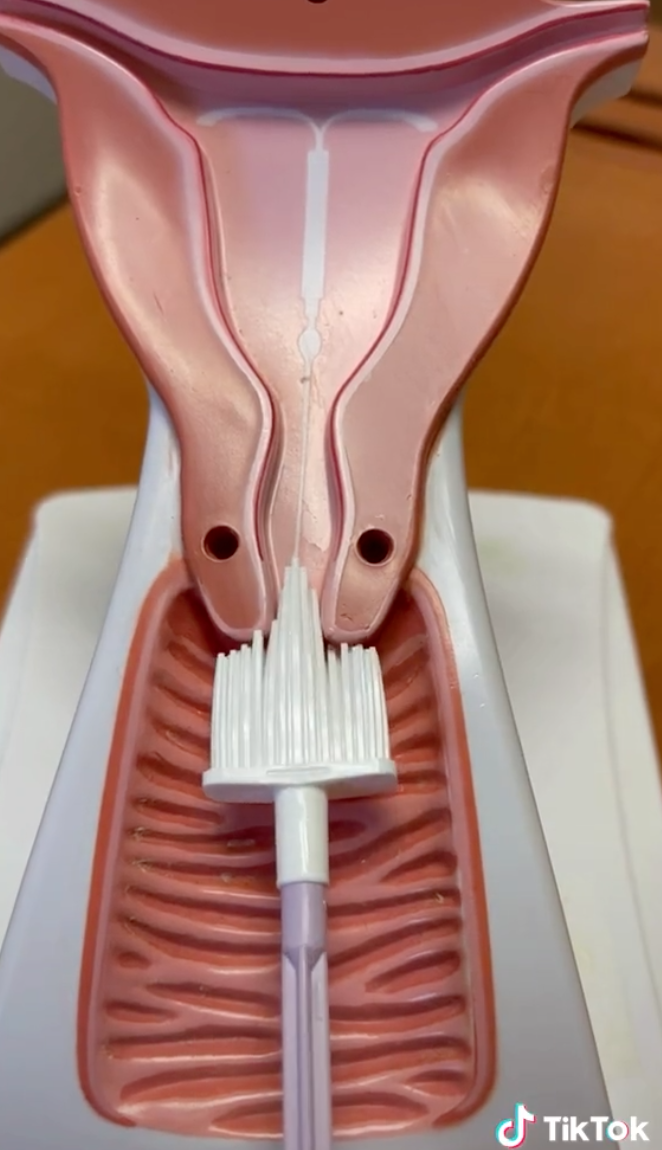
You can watch her TikTok where she explains the process in more detail here.
And Dr. Daoud confirmed that Pap smears absolutely save lives. "Before Pap smears became routine, cervical cancer was among the most prevalent cancers. These days, thanks to early detection of cellular abnormalities via Pap smear, cervical cancer has become much, much more rare."
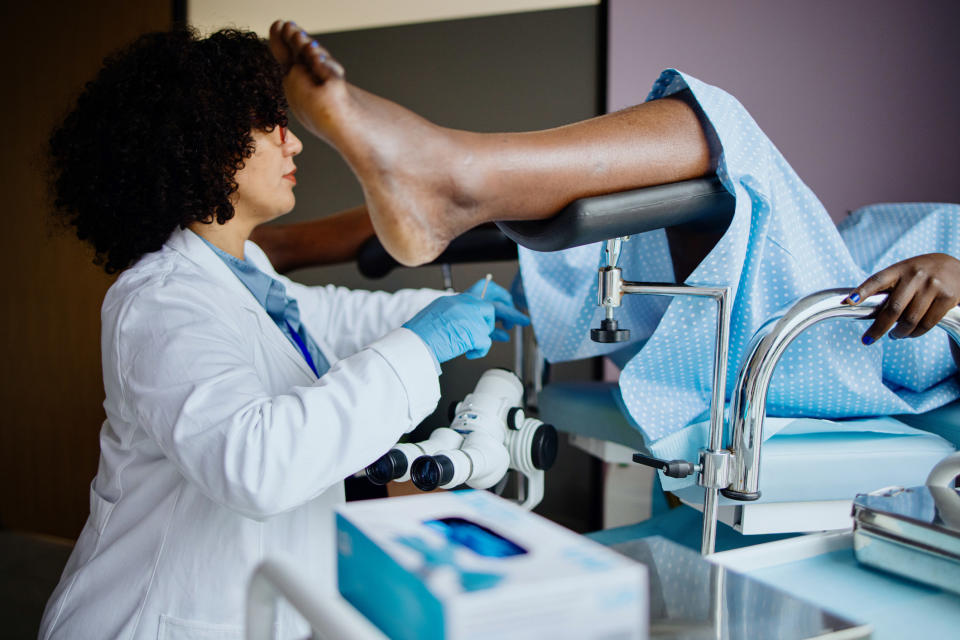
"In the United States, anyone with a cervix between the ages of 21–29 needs a Pap smear every three years, regardless of prior sexual activity. Between the ages of 30–65, Pap smears are done every five years. If at any point a Pap smear or HPV test comes back abnormal, more frequent or intensive testing may need to be done. People with certain medical conditions, such as HIV, get Pap smears on a different schedule," she said.
Dr. Daoud confirmed that early-stage cervical cancer often has no signs or symptoms, and this is why Pap smears are so important. When cervical cancer progresses and spreads to other organs, she said you may experience heavier prolonged periods, bleeding outside of the menstrual cycle, bleeding after penetrative intercourse, increased vaginal discharge, foul-smelling vaginal discharge, pelvic pain, and pain during intercourse.

(These are the exact symptoms Kenzi experienced when she found out she had cervical cancer again.)
In addition to getting routine Pap smears, Dr. Daoud's final advice is to stop smoking and get the HPV vaccine. "The overwhelming majority of cervical cancer (as well as vaginal, vulvar, anal, and penile cancers) are caused by Human Papillomavirus, or HPV. Please stop smoking tobacco. It impairs your body's ability to fight off HPV, allowing it to linger longer inside your body and cause the cellular changes that lead to cancer."
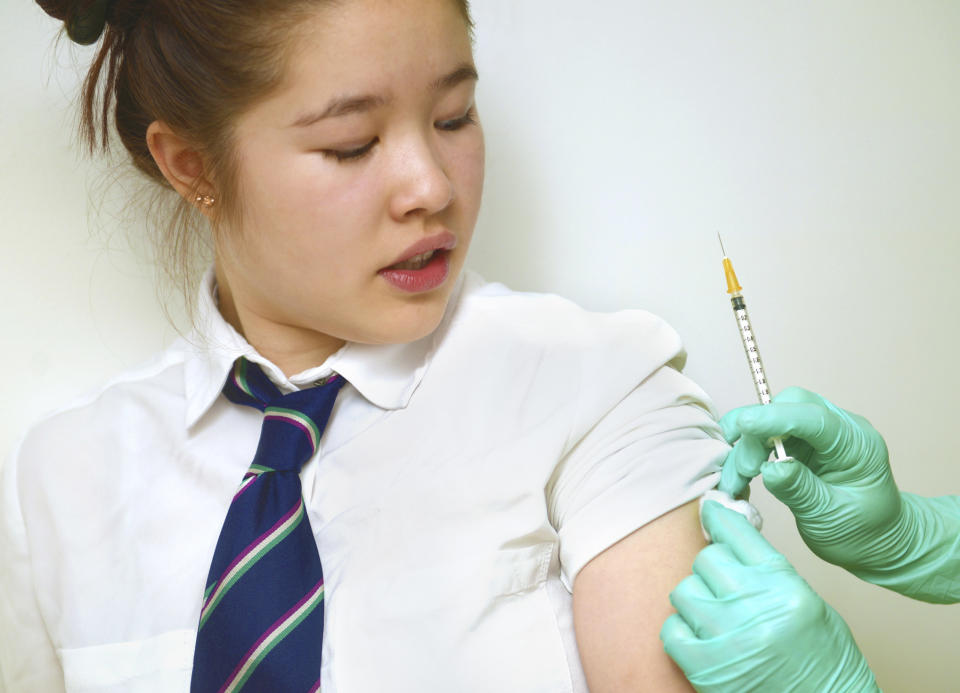
"Anyone ages 11–45 is eligible for the HPV vaccine, which offers 99% effective protection against the nine most dangerous strains of HPV. It is a vaccine that can protect you from cancer. Please talk to your health care provider, regardless of whether or not you have tested positive for HPV in the past," she said.

